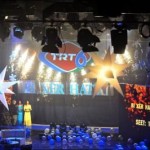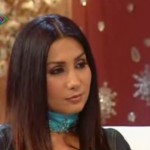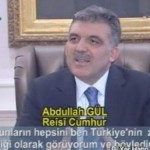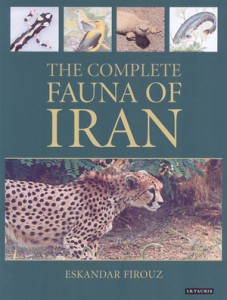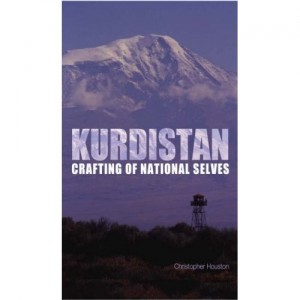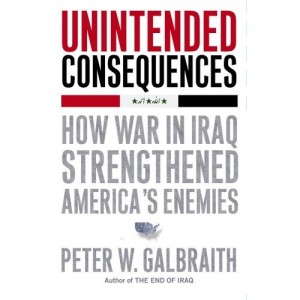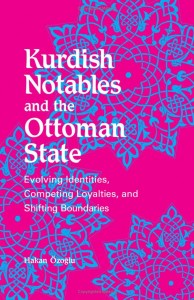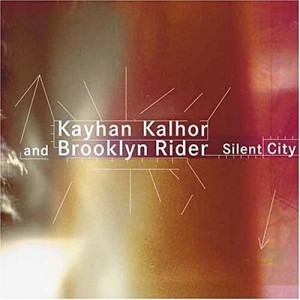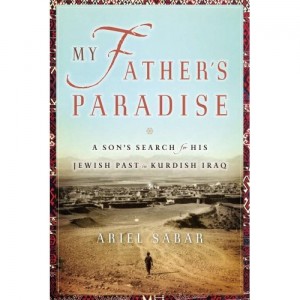By Mutlu Çiviroğlu
After a one week test programs, TRT 6 started its full, 24 hours broadcast on Thursday, January 1, 2008. For the opening of the Kurdish TRT 6, a reception was held at the TRT’s Arı studio in Ankara.
Three government ministers and many deputies from the ruling Justice and Development Party (AKP) attended the event. State Minister Mehmet Şimşek, State Minister Mehmet Aydın and Culture Minister Ertuğrul Günay delivered speeches and expressed their contentment and support for the Kurdish channel. Although Kurdish TV and radio broadcasts are one of the major demands of Democratic society Party (DTP) nobody from the party participated to the reception.
Although it was announced before that Prime Minister Recep Tayyip Erdogan would take part in the opening reception, his congratulatory message which was concluded with a Kurdish sentence “TRT 6 bi xêr be†appeared instead. After Prime Minister’s message, President Abdullah Gul’s message came to the screen and both messages carried hopeful and promising wishes and sentiments for the Kurdish TV and for the democratization of the country.
Although many argue against it, opening of a 24 hours Kurdish Channel has brought an enormous optimism and hope to Turkey. TRT 6 has also created a significant, positive effect among the Kurds who have been watching the TV excitedly, since it’s the first TV channel in Turkey, broadcasting in a language which was banned for decades.
For this reason, Voice of America’s Kurdish Service (www.voanews.com/kurmanji) conducted an interview on Saturday, January 3, 2009 with the director of the channel Sinan Ilhan regarding the Kurdish TV, and there, Ilhan stated that TRT 6 would be objective and it will be a channel for all Kurmanji speakers. Answering the questions of Fakhria Jawhary, the chief of VOA Kurdish Service, Sinan also said that all their viewers will witness their sincerity about a democratic and non ideological broadcasting of the Kurdish TV.
Before preparing this article, I had the opportunity to speak some Kurds from different cities. The common messages of all viewers were that they were very happy to have a channel with their mother tongue and this TV represented a historical milestone for the democratization of the country and the rights of Kurds in Turkey. Some expressed concerns that it could have been a trick of the government for the upcoming elections, some were angry that several groups unfairly attack the channel as being a mouthpiece of the government and label those who work for the channel and those who appear there as traitors. It is evident that the controversy on this issue will continue for a while.
Rather than this controversy, I would like to speak about some of the first impressions that I gathered on TRT 6. The channel so far has shown a nice and respectful attitude towards the Kurdish language and the culture. During all three days that I have been watching TRT 6, I have neither witnessed any insult or humiliation against Kurds nor watched any government propaganda. The channel is continuing a neat and orderly broadcast composed of nice cultural, musical, literary, social and documentary programs. Especially documentary films, such as Ramazan Ozturk’s “Xala Åžikestînêâ€, “Roj Ji Rojlihat Hiltê†and some others, appear to be quite attractive. Also, cultural programs “Sevberk†presented by Kenan Oto and “Karwana Åževê†which gathered several “dengbêj†(traditional Kurdish lyric singers) were interesting programs.
Among all these programs, well-liked singer Rojin’s show “Rojiname†has a growing popularity. The show is aired in weekdays with the actual participation of guests in the studio. Rojin hosts two guests, one of whom is usually a singer and the other one is usually a professional who talks about his/her profession and answers the questions of anchor and the audience.
TRT 6 also offers several enjoyable cartoon films for children that create opportunities for children to watch cartoons in their mother language and at the same strengthens channel’s claim of being a family channel. TRT 6 also airs both renowned domestic and international movies for adults. Celebrated film “Eşkiya†of famed actor Şener Şen was one of these movies that Kurdish channel showed on its second day. Also, “16 Blocks†of Hollywood celebrity Bruce Willis was among the movies that TRT 6 aired.
As I mentioned before TRT 6’s broadcast is in general positive and pleasurable, and there is no doubt that the channel will improve its quality in future and attract more spectators. However, there are some points that need attention of the TRT officials. First of all, the Kurdish channel doesn’t seem to have a standard language for the broadcast. Instead, it seems that each producer uses his own language and this naturally creates linguistic disruption. For example, I observed that the word “muzîk†(music) was spelled in four different ways in TRT 6, like mûzîk, musîk, musik, musîkî. The word “president of the republic†is called “serokkomar†in Kurdish, but TRT 6 used “reîsî cumhur†which is Arabic instead, when the message of President Gul was aired.
Kurdish language has a standard alphabet and there is an established standard of usage of the language. In this regards, it is essential that TRT 6 seeks professional assistance from institutions or personalities who are involved in Kurdish language and culture, such as Paris Kurdish Institute, Istanbul Kurdish Institute, Kurdish Library in Sweden and other linguists living in Europe and North America. Especially Paris Kurdish Institute is well known about its studies and research on the main Kurdish dialect Kurmanji which TRT 6 uses. The institute has formed a study group called “Kurmancî†which is the Kurdish spelling of “Kurmanji†in 1987. This study group which is composed of Kurdish and non-Kurdish linguists and Kurdologists from various Kurmanji speaking regions meet periodically to discuss about the problems of the language and create solutions for these problems. It also keeps a record of the words with same meanings but only used in certain areas and not known widely by other Kurdish speakers, and publishes in its journal “Kurmancî†which can be found from the following address: www.institutkurde.org/en/publications/kurmanci/
One other issue needs some improvement is the news bulletins of the channel. The news is read in background by a voice and it’s quite short and simple. News bulletins and news programs are among the most essential component of a TV channel and I am hoping that TRT 6 will do better in future. It would be more appropriate and accurate, if the channel uses the Kurdish words “dengûbas†or nûçe†instead of current “xeber†which comes from Arabic again.
It’s of course not fair to expect TRT 6 to be perfect, It’s a fresh channel and it is too soon to criticize it, however, these suggestions are some basic, modest suggestions for the good of the channel. TRT has taken a significant step by launching the 24 hour TV channel. This channel can act like a bridge between Kurdish language and culture and other cultures in Turkey. By opening a Kurdish TV channel, which is objective, far from political concerns and respectful to people’s language, culture and identity, will certainly make millions of Kurdish citizens feel more respected and valued and it will also strengthen the brotherhood these two people.
One other important aspect of this TV channel is that, it uses Kurmanji, the major dialect of Kurdish language which is spoken by some 75 % off all Kurds worldwide. www.en.wikipedia.org/wiki/Kurmanji. Presently, almost all of the Kurdish satellite TVs, with the exception of Roj TV (which is mainly Kurmanji and Turkish) predominantly broadcast in Sorani dialect of Kurdish. So, Kurmanji speaking Kurds lack of a channel that predominately broadcast in this language. By broadcasting in Kurmanji, TRT 6 will not only reach to 90 % of the Kurds in Turkey, but also all Kurds in Syria, Lebanon and former Soviet republics, such as Armenia, Georgia, Azerbaijan, Russia, Ukraine, Kazakhstan and others. It will also reach to the Kurmanji speaking Kurds of Iraq living in Mosul, Duhok and some parts of Hewler (Erbil) provinces and Urumia and with its estimated 1.5 million population Kurds living in Khorasan provinces in Iran.
Thanks to Kurmanji channel, in addition to Kurds living in Europe, TRT 6 will be able to reach significant amount of Kurmanji speakers in USA and Canada, who are mainly from Behdinan region of Iraqi Kurdistan. Some of the Iraqi Kurds I spoke in Calgary told me that they have been watching the broadcast of TRT 6 continuously from the first day the channel became available on the internet. Similar interest can also bi detected among the Kurds from Syria as well. It is likely that if the Kurdish channel can create an objective and non ideological broadcasting like director Ilhan promises, Kurmanji speaking Kurds of other counties will also show an interest for the this TV station and TRT will reach its voice to a broader geography.
Some Suggestions for TRT 6
TRT launched its new website (www.trt.com.tr ) on December 20, 2008 but Kurdish is not listed one of 31 languages that TRT currently broadcasts. TRT officials should create multilingual (Kurdish, Turkish and English) website for the channel, probably with a domain name like trtkurdish.com or trtkurdi.com and post contact addresses of the channel. In case, viewers want to make suggestions to send their criticisms to the channel officials, there aren’t any known contact information or contact forms that people can use.
It is also important that TRT 6 improves the live internet streaming because for many people it’s the only way to watch the channel. With the day by day increase of the viewers, the technical quality of the internet broadcast has been decreasing. The channel through the internet can not be watched sometimes due to frequent freezing. It can be a good idea to increase the capacity and the quality of the internet streaming, so that the audience can conveniently watch the channel. Last but not least, TRT 6 should also consider broadcasting in USA and Canada via satellite soon for the large Kurdish population that is available in these countries and the programs can be repeated according to the local time, due to time difference. (There is a seven hours time difference between Turkey and Eastern Time and ten hours, between Turkey and Pacific Time).
Despite controversies and criticisms TRT 6 made a good start. My optimism is that it will continue to be an objective TV channel, without being mouthpiece of any political circle. I also hope that TRT 6 will get better in the future and receive acceptance and support from the majority of the Kurds. I wholeheartedly believe that peoples of Turkey deserve to live in peace side by side, with respecting each others language, culture and identity and TRT 6 is an important milestone on this way. I share the hope of many people that TRT 6 will be the first step of cultural and democratic rights of Kurdish people in Turkey, not simply a political maneuver to attract Kurdish votes, like some fear. It’s the common wish of millions that the optimistic environment that the channel has created will make positive impact on future reforms.
You can watch the live broadcast of TRT from the following link: www.trt.net.tr/Canli/anasayfa.aspx?kanal=TV6
* Mutlu Çiviroğlu is a freelance writer and certified Kurdish language instructor. He can be reached at mciviroglu@gmail.com

